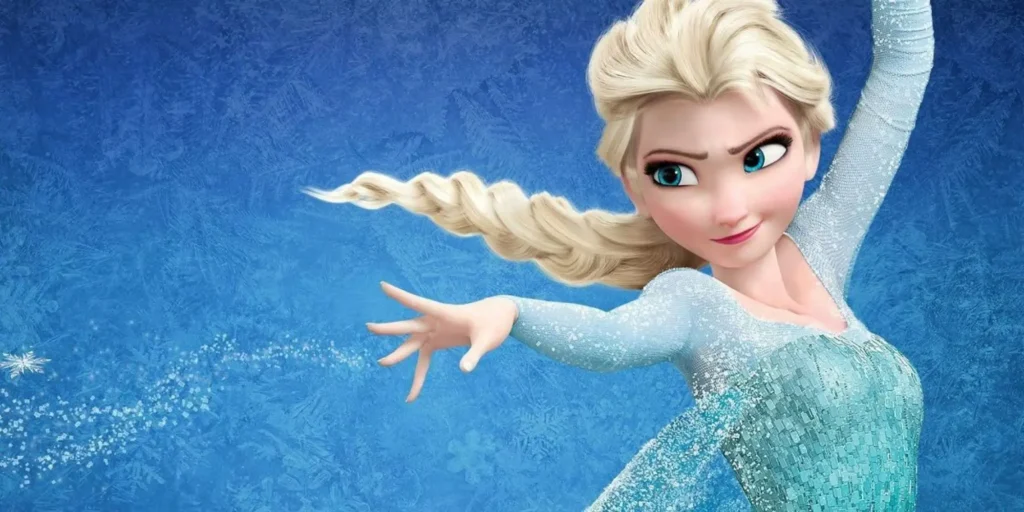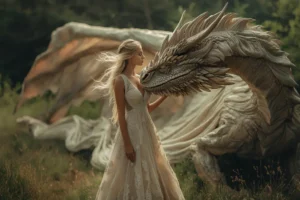
Elsa, the Snow Queen of Arendelle from Disney’s beloved “Frozen” franchise, stands as one of modern animation’s most powerful symbols of self-acceptance, personal growth, and the courage to embrace one’s true identity. Her extraordinary journey from a frightened young woman hiding her magical abilities to a confident queen who celebrates her uniqueness has inspired millions around the world to let go of fear and shame about what makes them different. These Elsa affirmations draw inspiration from her remarkable transformation and her discovery that true power comes not from suppressing who you are, but from embracing your authentic self with courage and love.
The enduring appeal of Elsa lies in her embodiment of the universal struggle to accept ourselves fully, especially the parts of us that we’ve been taught to hide or feel ashamed of. Her magical ice powers serve as a metaphor for any trait, talent, or aspect of identity that makes us feel different from others or that we’ve been conditioned to view as dangerous or unacceptable. Through her story, Elsa demonstrates that our greatest gifts often lie within the very qualities we’ve been taught to suppress, and that true freedom comes from learning to love and accept ourselves completely.
These Elsa affirmations will help you cultivate the same self-acceptance, courage, and inner strength that guided this beloved character through her transformation from fear to freedom:
• Embrace your uniqueness and special abilities, understanding that what makes you different is often what makes you extraordinary and powerful • Release the need to hide your true self from others, finding the courage to show up authentically in all areas of your life • Transform fear into empowerment by facing your anxieties head-on and discovering that you are stronger than you imagined • Practice self-compassion when you make mistakes, knowing that growth and healing are ongoing processes that require patience with yourself • Set healthy boundaries with people who cannot accept your authentic self, prioritizing your well-being and mental health • Trust in your inner wisdom and intuition, allowing your authentic voice to guide your decisions rather than external expectations • Create your own path in life rather than following what others expect of you, building a future that aligns with your true values and desires • Use your gifts and talents to help and inspire others, sharing your light while maintaining your own sense of identity and purpose • Find strength in solitude when needed, understanding that being alone can be a powerful source of self-discovery and renewal
Whether you’re struggling with self-acceptance, learning to embrace your differences, or simply seeking the courage to live more authentically, these Elsa affirmations will remind you of the transformative power that comes from loving yourself exactly as you are and letting your true self shine.
25 Best Elsa Affirmations
- Like Elsa, I embrace my unique gifts and abilities, understanding that what makes me different makes me extraordinary.
- I release the need to hide my true self from others, finding courage to show up authentically in every situation.
- My power grows stronger when I accept and love myself completely, flaws and all.
- I transform fear into strength by facing my anxieties with courage and self-compassion.
- Like Elsa, I set healthy boundaries to protect my energy and well-being from those who cannot accept my authentic self.
- I trust my inner wisdom and intuition to guide me toward decisions that align with my true nature.
- My sensitivity and emotions are sources of strength, not weaknesses to be hidden or suppressed.
- I create my own path in life, building a future that reflects my values rather than others’ expectations.
- Like Elsa, I find peace and strength in solitude when I need time for self-reflection and renewal.
- I use my gifts and talents to inspire and help others while maintaining my own sense of identity.
- My past mistakes and struggles have shaped me into a wiser, more compassionate person.
- I practice self-forgiveness when I fall short of my own expectations, knowing that growth is a continuous journey.
- Like Elsa, I understand that true love starts with loving and accepting myself unconditionally.
- I release the need for others’ approval, finding validation from within rather than from external sources.
- My authenticity gives others permission to be their true selves as well, creating deeper and more meaningful connections.
- I face challenges with grace and resilience, knowing that every obstacle is an opportunity for growth and self-discovery.
- Like Elsa, I transform isolation into empowerment, using alone time to connect with my inner strength and wisdom.
- I express my creativity and uniqueness freely, without fear of judgment or criticism from others.
- My vulnerability is a source of connection and strength, allowing me to build genuine relationships with others.
- I trust in my ability to overcome any challenge, drawing on the infinite well of strength that lies within me.
- Like Elsa, I understand that perfection is not required—authenticity and self-acceptance are what truly matter.
- I honor my need for space and boundaries while remaining open to love and meaningful connections.
- My journey of self-discovery continues to unfold, and I embrace each new layer of understanding about myself.
- I use my voice to speak my truth with confidence and clarity, never diminishing myself to make others comfortable.
- Like Elsa, I know that letting go of fear and embracing love—especially self-love—is the key to living a fulfilling and powerful life.
Elsa: Inspirational Quotes
The wisdom and emotional depth of Elsa resonate throughout Disney’s “Frozen” films, offering profound insights into self-acceptance, courage, and the journey toward authentic living. These carefully selected quotes capture the essence of her transformation from a frightened young woman hiding her powers to a confident queen who embraces her true nature. Each quote reflects her growth, her struggles with fear and isolation, and her ultimate discovery that love—particularly self-love—is the most powerful force of all.
- “Let it go, let it go, can’t hold it back anymore.”
- “The cold never bothered me anyway.”
- “I can’t feel anything.”
- “I don’t care what they’re going to say.”
- “No right, no wrong, no rules for me, I’m free!”
- “It’s funny how some distance makes everything seem small.”
- “The fears that once controlled me can’t get to me at all.”
- “I’m never going back, the past is in the past.”
- “Here I stand in the light of day.”
- “My power flurries through the air into the ground.”
- “I am one with the wind and sky.”
- “You don’t have to protect me. I’m not fragile.”
- “I’m not leaving without you, Elsa.”
- “Some people are worth melting for.”
- “Love is putting someone else’s needs before yours.”
- “The only frozen heart around here is yours.”
- “I’ve been searching my whole life to find my own place.”
- “And I promise you, the flag of Arendelle will always fly.”
- “We head north.”
- “I belong here. Alone. Where I can be who I am without hurting anybody.”
- “Anna, please, you’ll only make it worse.”
- “There’s so much fear.”
- “You sacrificed yourself for me?”
- “I love you.”
- “Water has memory.”
History of Elsa
Elsa emerged from Disney’s creative reimagining of Hans Christian Andersen’s classic fairy tale “The Snow Queen,” first published in 1844. However, the Elsa we know and love is vastly different from Andersen’s original Snow Queen character, who was portrayed as a cold, distant antagonist rather than a complex protagonist struggling with self-acceptance. Disney’s version transforms the Snow Queen into Elsa, a young woman grappling with magical powers she doesn’t understand and the fear of hurting those she loves most.
The development of Elsa’s character began in earnest when Disney decided to adapt “The Snow Queen” in the early 2010s. Initially, the story followed a more traditional approach with Elsa as the villain, but the creative team, led by directors Chris Buck and Jennifer Lee, recognized the potential for a more nuanced and emotionally resonant character. The breakthrough came when they realized that Elsa’s isolation and fear could make her a sympathetic character whose journey toward self-acceptance would resonate with audiences of all ages.
Elsa’s character arc centers around her relationship with her magical ice powers, which serve as a metaphor for any aspect of identity that makes someone feel different or potentially dangerous to others. Born with the ability to create ice and snow, Elsa learns early in life that her powers can be both beautiful and destructive. After accidentally injuring her younger sister Anna during childhood play, Elsa becomes consumed with fear and shame about her abilities, leading her parents to seek help from the mystical trolls who erase Anna’s memories of Elsa’s magic.
The tragic loss of her parents in a shipwreck leaves Elsa to rule Arendelle while still struggling with her uncontrolled powers and deep-seated fear of discovery. Her coronation day becomes the catalyst for her transformation when her emotions cause her powers to manifest publicly, forcing her to flee to the mountains where she can finally explore her abilities without fear of hurting others. This moment of liberation, captured in the iconic song “Let It Go,” represents the beginning of her journey toward self-acceptance.
Elsa’s story in the first “Frozen” film focuses on learning that love, rather than fear, is the key to controlling her powers and accepting herself. Through her relationship with Anna and her own self-discovery, she learns that isolation is not the answer to her struggles and that authentic connections with others require vulnerability and trust. Her character development continues in “Frozen II,” where she discovers the source of her powers and her true calling as the fifth spirit connecting the magical and human worlds.
The character’s journey resonates particularly strongly with audiences who have felt different, misunderstood, or pressured to hide aspects of their identity. Elsa’s struggle with her powers has been interpreted as a metaphor for various experiences, including mental health challenges, LGBTQ+ identity, neurodivergence, and any form of otherness that society might view as dangerous or unacceptable. This universality has made her an inspiration for people of all ages who are learning to embrace their authentic selves.
Who and When Made Elsa
Elsa was created by Disney’s creative team for the 2013 animated film “Frozen,” with the character’s development led by directors Chris Buck and Jennifer Lee, along with producer Peter Del Vecho. The film was produced by Walt Disney Animation Studios in the United States, representing a significant evolution from Hans Christian Andersen’s original 1844 Danish fairy tale “The Snow Queen.” The creative process began in earnest around 2011, with the team working to develop a version of the Snow Queen story that would resonate with modern audiences.
Jennifer Lee, who became Disney’s first female director of a theatrical animated feature with “Frozen,” played a crucial role in shaping Elsa’s character and emotional journey. Lee’s background as a screenwriter and her understanding of complex female characters helped transform Elsa from a traditional villain into a nuanced protagonist whose struggles with fear, isolation, and self-acceptance would become the emotional core of the film. Chris Buck, co-director and a Disney veteran, brought his expertise in character animation and storytelling to help bring Elsa’s visual design and personality to life.
The character’s creation was also significantly influenced by the songwriting team of Kristen Anderson-Lopez and Robert Lopez, who wrote the songs for “Frozen.” Their composition “Let It Go” became pivotal in defining Elsa’s character arc and transforming the story from a traditional fairy tale into a modern narrative about self-empowerment and authenticity. The song’s themes of liberation and self-acceptance became central to Elsa’s identity and helped establish the emotional foundation of her character.
Elsa is voiced by Broadway actress and singer Idina Menzel, whose powerful vocals and emotional depth brought the character to life. Menzel’s background in musical theater, particularly her work in “Wicked” as Elphaba, made her an ideal choice for a character who transforms from feared outsider to empowered leader. Young Elsa is voiced by Eva Bella in the first film and Mattea Conforti in “Frozen II.”
“Frozen” was released by Walt Disney Pictures on November 27, 2013, and became an unprecedented global phenomenon. The film grossed over $1.2 billion worldwide, making it one of the highest-grossing animated films of all time. Elsa’s character and her signature song “Let It Go” became cultural touchstones, inspiring countless covers, parodies, and interpretations across social media and popular culture.
The intellectual property surrounding Elsa has expanded far beyond the original film to include “Frozen II” (2019), various short films including “Frozen Fever” (2015) and “Olaf’s Frozen Adventure” (2017), a Broadway musical adaptation, theme park attractions, merchandise, video games, and numerous other products. The character has become one of Disney’s most valuable properties and a central figure in the Disney Princess franchise.
The success of “Frozen” and Elsa’s character led to the development of “Frozen II,” released in 2019, which further explored her character development and revealed the origins of her powers. The sequel became even more successful than the original, grossing over $1.4 billion worldwide and becoming the highest-grossing animated film of all time.
Elsa’s cultural impact extends far beyond entertainment, with the character becoming a symbol of self-acceptance and authenticity for diverse communities. Her story has been embraced by LGBTQ+ audiences, individuals with mental health challenges, and anyone who has felt the need to hide aspects of their identity. The character has inspired academic analysis, social media movements, and real-world discussions about acceptance and authenticity.
The character’s influence on animation and storytelling has been significant, helping to establish a new model for Disney protagonists who are complex, flawed, and on journeys of self-discovery rather than simply seeking romantic love. Elsa’s character development has influenced subsequent Disney films and animated features from other studios, contributing to a broader trend toward more psychologically complex and emotionally resonant animated characters.
Disney continues to develop new content featuring Elsa, including potential future films, series, and other media, ensuring that her story and message of self-acceptance will continue to inspire new generations of audiences worldwide.
Why We Love Elsa
Our enduring love for Elsa stems from her authentic portrayal of the struggle many of us face in accepting ourselves fully, especially the parts of us that feel different or potentially problematic. Her journey from fear and isolation to self-acceptance and empowerment resonates deeply because it reflects the universal human experience of learning to love ourselves unconditionally. She shows us that our greatest strengths often lie within the very qualities we’ve been taught to hide or suppress.
Elsa appeals to audiences because she demonstrates that perfection is not required for love or acceptance—what matters is authenticity and the courage to be true to oneself. Her powerful voice, both literally through her singing and figuratively through her story, gives permission to anyone who has felt like an outsider to embrace their uniqueness rather than conforming to others’ expectations. Her transformation from a frightened young woman to a confident queen shows us that personal growth is possible at any stage of life.
Perhaps most importantly, Elsa represents the radical idea that self-love is not selfish but necessary for genuine connection with others. Her story teaches us that we cannot truly love others or allow them to love us until we accept ourselves completely. She reminds us that isolation born from fear and shame is not protection but prison, and that true freedom comes from having the courage to let others see and love our authentic selves.
Her enduring popularity reflects our collective need for stories that celebrate difference rather than conformity and that show us it’s possible to transform our deepest fears into our greatest sources of power and beauty.
Interesting Facts about Elsa
- Snow Queen Origins: Elsa is based on the Snow Queen from Hans Christian Andersen’s 1844 fairy tale, but Disney completely reimagined her as a protagonist rather than an antagonist.
- Originally a Villain: In early development, Elsa was planned to be the traditional villain of the story until the creative team decided to make her a more complex, sympathetic character.
- “Let It Go” Transformation: The song “Let It Go” was so powerful that it completely changed Elsa’s character arc and the entire direction of the film’s story.
- Idina Menzel’s Voice: Broadway star Idina Menzel provides Elsa’s speaking and singing voice, bringing her theater experience to the role.
- No Love Interest: Elsa is notable for being a Disney protagonist without a romantic storyline, focusing instead on self-acceptance and sisterly love.
- Fifth Spirit: In “Frozen II,” Elsa discovers she is the fifth spirit, the bridge between the magical and human worlds.
- Ice Palace Design: Elsa’s ice palace was inspired by real ice hotels and crystalline structures found in nature.
- Cultural Impact: “Let It Go” won the Academy Award for Best Original Song and became a global anthem for self-acceptance.
- Merchandise Success: Elsa-related merchandise, particularly her dress, became one of Disney’s most successful product lines.
- Broadway Musical: Elsa is featured in the Broadway adaptation of “Frozen,” with Caissie Levy originating the role on stage.
- Theme Park Presence: Elsa appears in multiple Disney theme park attractions, including “Frozen Ever After” at EPCOT.
- Animation Innovation: The animation of Elsa’s ice magic required new techniques and software development by Disney’s animation team.
- Global Phenomenon: “Frozen” became a worldwide cultural phenomenon, with Elsa’s story resonating across different cultures and languages.
- Sequel Success: “Frozen II” became the highest-grossing animated film of all time, largely due to continued interest in Elsa’s character development.
- LGBTQ+ Icon: Many in the LGBTQ+ community have embraced Elsa as a symbol of coming out and self-acceptance, though Disney has not officially confirmed this interpretation.








